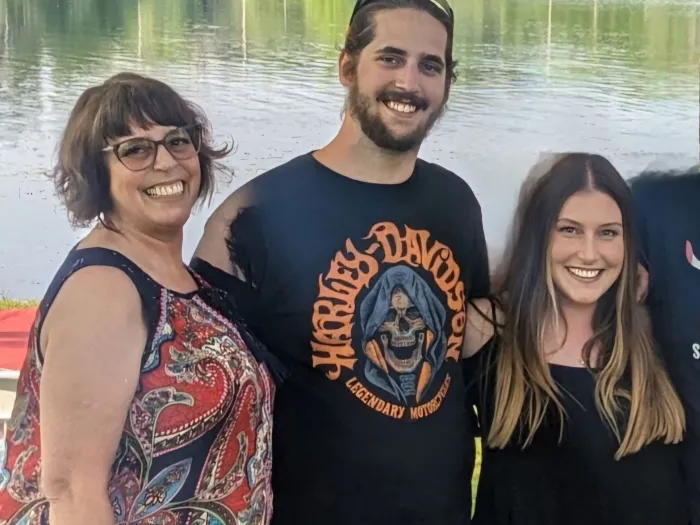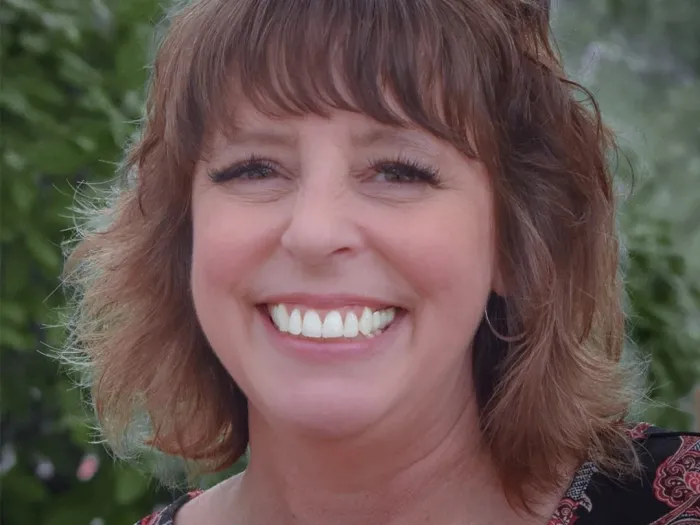Studying history while making it happen
Christmas Joy Offering helps recent Stillman College graduate promote restorative justice in action


LOUISVILLE — Sitting next to a picture on the wall at her office, LaTrell Clifford Wood accidentally discovered a significant piece of her family’s history.
“The picture had a name on it: Chief Justice McClellan, who presided over the Supreme Court of Alabama when the 1901 Constitution was written,” said LaTrell, an honors history major and the valedictorian of the Class of 2020 at Stillman College. Stillman is one of three Presbyterian-related Schools and Colleges Equipping Communities of Color of the Presbyterian Church (U.S.A.), and its only Historically Black College (HBCU).
“That was the constitution that made a lot of broad statements about the forced illiteracy and alleged moral depravity of many Black people as ‘justification’ for them not being permitted to vote,” she said before adding, “It was actually McClellan’s family who owned my great-great-grandfather’s mother. These weren’t stories that I knew growing up.”
But now she does.
LaTrell’s grandfather, 1st Lt. Earl R. Lane, was a Tuskegee Airman, and his father, Levi Lane, who was born in Alabama, became a civil rights activist in Wickliffe, Ohio.
As a child, Levi’s family was run out of the state by the Ku Klux Klan during the first wave of the Great Migration. They relocated to Oklahoma, where Levi’s father, Iverson Wesley (I.W.), was the mayor of an all-Black town called Red Bird, parts of which were burned down during the Tulsa Race Massacre of 1921, including Lane’s family business.
“I think it’s really inspiring that even after that … [I.W.] went on to sue the State of Oklahoma for the right to vote and was the plaintiff in one of two Supreme Court cases that overturned voter literacy laws,” she said, citing Lane v. Wilson (1939), which granted voting rights to many of Oklahoma’s Black citizens. “These were the same laws that the people and their descendants, who had previously owned his mother, had made and maintained. These were also laws that John B. Knox, a direct descendant of the Scottish reformer, John Knox, a founder of Presbyterianism, advocated for and maintained as president of Alabama’s 1901 constitutional convention.”
It is clear that history — and restorative justice — very much matter to LaTrell, the youngest daughter and granddaughter of a teacher and three generations of civil rights activists with roots in both west and east Alabama.
“My older sister, DaKishia, always says if there’s room for epigenetic trauma, there’s room for epigenetic wisdom,” said LaTrell. “For a long time, I felt very disconnected because I didn’t know people’s stories.”
Yet even before she knew these stories, LaTrell was drawn to history and its practical application as an aspiring scholar, leader and social justice advocate.
“When I came to Stillman, I started out as a business and fine arts major, but after taking a couple of history classes, I thought to myself, I will never have an opportunity to learn history like this,” she said.
In addition, having witnessed her mother’s experience with the burden of student loan debt and its impact on her access to resources, LaTrell said that it was important that she go to a school that was investing in her, which Stillman did with a “full ride” scholarship.
Providing such promising students as LaTrell with the support and resources they need to thrive is what the PC(USA)’s Christmas Joy Offering — a cherished Presbyterian tradition since the 1930s — is all about. The annual offering distributes gifts equally to Presbyterian-related schools and colleges equipping communities of color and to the Assistance Program of the Board of Pensions.
Founded in 1876, Stillman College was initially established as a training school for African American ministers, like the Rev. William H. Sheppard, who exposed the genocide of the people of the Kasai region of the Belgian Congo by King Leopold II. In fact, in the 1960s, there was a student movement to rename the college “Sheppard College” in his honor.
Today, the HBCU sits on what was once the Cochran plantation, where, in following “The Stillman Way,” it “provides an environment that delivers the pursuit of intellectual excellence, the development of personal honor and a commitment to the common good.”
Among LaTrell’s many achievements at Stillman, she co-founded the college’s Sustainable Healthy Food Initiative Task Force. She later went on to serve as task force chair as well as project lead for the Community Garden Project, working closely with Mason Bonner, Stillman’s director of social justice and community engagement.
“My work now fighting food apartheid actually started at Stillman,” she said. “One person that I wouldn’t want to leave out, because he made me understand the historical significance of working on … [the] initiative at Stillman, is Brother James Muhammad, class of 1992. One of the things he highlighted for me was how much intergenerational knowledge was lost in people’s ability to grow and provide food for their families, which was part of what built community early on at the institution. But there is some question as to whether this was a compulsory or voluntary use of Black student labor to build up an institution that only employed white professors at its genesis.”

Not long after graduating, LaTrell found her way to Washington, D.C., with the Congressional Black Caucus Foundation, where she served Alabama’s 7th Congressional District as a congressional intern. Then, in 2023, she accepted a position as a hunger policy advocate for Alabama Arise, a statewide, member-led organization advancing public policies to improve the lives of Alabamians who are marginalized by poverty, truly carrying “The Stillman Way” into the world.
During her first state legislative session this spring, LaTrell successfully led the effort to secure a $10 million state match to administer Summer EBT, a program that will help reduce summer food insecurity for Alabama’s children for generations to come.
“From the moment she set foot on campus, LaTrell was a beacon of passion and ideology,” said Tasha Washington, Stillman’s dean of Retention and Student Success and LaTrell’s former supervisor. “LaTrell was inherently drawn to serving the underserved and forging pathways to higher education for those who thought it out of reach.”
As the child of an educator, LaTrell was taught that “education is how you’re going to be able to take care of yourself.”
But her ideologies have matured with the understanding that caring for yourself and others — by promoting workers’ rights, equity and workplace wellness — can help change the world.
Dr. Askhari Hodari, assistant professor of psychology and LaTrell’s first work-study supervisor and mentor, was quick to attest to those healing attributes.
“Not only did LaTrell do everything well, but she would also see things that needed to be done and took the initiative to do them,” said Hodari, who was diagnosed with Stage 4 cancer while supervising LaTrell.
“When I would come into the office, she would say, ‘You need to eat, you need to drink,’ and she would bring me something from the cafeteria,” Hodari recalled. “She displayed a kindness and a generosity that you sometimes don’t see in young people.”
Because of what Hodari, Washington and Dr. Cynthia Warrick — Stillman’s past and its first woman president — have meant to her both before and since graduating, LaTrell is committed to securing the college’s future.
“Since Stillman is a private institution and we don’t get state funding, we rely in large part on philanthropy, which can sometimes be permeated with a little bit of white evangelical racism,” she said.
“I think it’s even more important that people are giving now in ways that are not paternalistic.”
Especially through such initiatives as the Christmas Joy Offering.
“I see the Christmas Joy Offering as a way to support restorative justice,” said LaTrell. “It ensures, in part, that Black professors and faculty are paid competitive wages and can better serve their students. In the current political climate, where overturning affirmative action and anti-Diversity, Equity and Inclusion laws will increase enrollment at historically Black institutions, there’s a lot of room to influence and support a school that will likely take on more changemakers in the future.”
Changemakers like LaTrell herself.
“One of the most salient points I can make about LaTrell is that she is a good steward of future generations,” Hodari said. “If this is a marathon, she’s a good exchange. I trust her with my life. Every couple of years, there are some very special students who come to us, and that’s why people should give.”
Because Hodari is also a graduate and a faculty member of HBCUs, she appreciates the importance of giving — and giving back — to continue their legacy.
“And young people who give back,” she said, “that’s a circle that will go on and on and on.”
Give to the Christmas Joy Offering to help Presbyterian-related schools and colleges equipping communities of color provide life-changing experiences.
You may freely reuse and distribute this article in its entirety for non-commercial purposes in any medium. Please include author attribution, photography credits, and a link to the original article. This work is licensed under a Creative Commons Attribution-NonCommercial-NoDeratives 4.0 International License.




